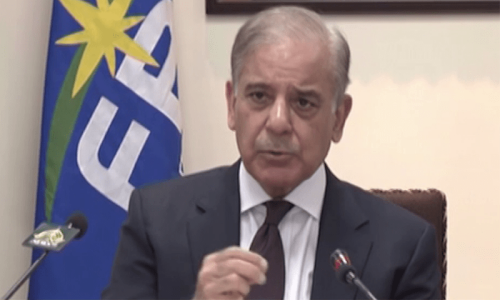KARACHI: The current fiscal year’s tax-laden budget and the Supreme Court’s ruling on reserved seats have shifted the focus of politics on the economy, casting doubts over the country’s ability to meet the new IMF conditions for a $7 billion loan.
Analysts indicate that the government is seeking China’s help to restructure its substantial $28bn debt. However, sources suggest China is unlikely to restructure these loans, fearing that other nations, like Sri Lanka, may also seek debt re-profiling from Beijing.
“This is crucial to determine if the government can meet the conditions for a $7bn IMF loan agreement. Nonetheless, I am confident the government will sign the deal at any cost,” said a senior researcher.
Bankers and analysts agree that the country faces significant challenges, with political pressure mounting to provide relief to the public.
“The government has failed to offer any relief, instead exacerbating the situation by repeatedly increasing fuel and electricity prices,” remarked a senior banker, noting that only banks and the equity market are enjoying the “worst economy”, recording historic profits.
In contrast, sectors like textiles are calling for tax reductions and price controls. Exporters are also dissatisfied with the new taxes on their income.
The annual inflation rate for FY24 stood at 23.4 per cent, leaving the real interest rate negative by 3pc. “How can we expect any big cut in the interest rate in future to stimulate the economy?” the banker questioned.
Sources said the IMF has asked the State Bank to maintain fiscal discipline, implying no substantial relief in interest rates soon.
The high cost of doing business has already led to economic contraction in FY23, with a mere 2.4pc growth in FY24.
“If the political situation remains unstable, significant growth in FY25 is unlikely, which will increase unemployment and deepen political uncertainties,” noted an analyst. The IMF projects 3.5pc growth for FY25, while Fitch Ratings estimates 3.2pc.
Faisal Mamsa, CEO of Tresmark, remains optimistic that the IMF deal will unlock additional funding sources, stabilise the rupee and bolster foreign exchange reserves.
However, he expressed concerns about the political and social challenges in the country, which could complicate the successful implementation of IMF conditions.
“Moody’s points out that Pakistan has historically struggled with implementing the structural reforms required by IMF programmes, which casts doubt on the current deal’s effectiveness,” he said.
Despite campaigns for deals with Saudi Arabia, UAE and China, no substantial progress has been made, nor has privatisation of any government entity gone through, Mr Mamsa said, adding that the anti-poor budget may not be sustainable in the long term.
Published in Dawn, July 21st, 2024


































